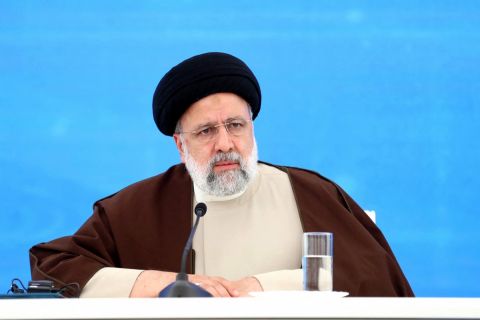ALBAWABA - Following the death of Iranian President Ebrahim Raisi along with several high-profile officials in a helicopter crash in East Azerbaijan province, vice-president Mohammad Mokhber is set to take over as interim president for the time being.
A close personality to the supreme leader Ayatullah Ali Khamenei, Mohammad Mokhber became vice president when Raisi was elected back in 2021.
As interim president, Mokhber is a member of a three-person committee, together with the speaker of parliament and the head of the judiciary, that will call a new presidential election within 50 days after the president's death.
Mokhber held various positions in the country that are of great significance, notably being the head of Setad, an investment fund linked to the supreme leader. For the period of the next 50 days, Mokhber will be assuming the duties of the late president till official presidential elections are held.
The Constitution requires a committee made up of the Speaker of Parliament, the Chief Justice, and the First Vice President to prepare for the election of a new president within 50 days. Notably, an amendment to the constitution in 1989 granted the Supreme Leader, now Sayyed Ali Khamenei, additional decision-making authority.
Mokhber had occupied several positions, including the Deputy Minister of Trade and Transport for the Foundation of the Deprived, Deputy Governor of Khuzestan, Executive Vice President and Managing Director of the Khuzestan Telecommunications Company, and Managing Director of the Dezful Telecommunications Company.
The front-runner for the presidency has two doctorates: one in management and the other in international law. In addition, he holds a master's degree in management with a systemic emphasis.
How does it work?
As part of the procedures for dealing with any vacancy in the president of Iran, Article 131 of the Iranian constitution states that the Vice President takes on the tasks of the President of the Republic while exercising his authority with the approval of the Leader of the Islamic Revolution.
According to the article, if the President of the Republic dies, is impeached, resigns, is absent or ill for more than two months, or if the presidential term expires and no new president is elected due to obstacles or other similar circumstances, the Vice President assumes the President's functions and exercises his powers.
According to Article 132 of the Iranian constitution, during the period when the First Vice President of the Republic, or another person appointed under Article 131, assumes the responsibilities of the President of the Republic and exercises his powers, ministers cannot be interrogated or lose confidence in them, and there can be no review of the constitution or issuance of a general referendum.









